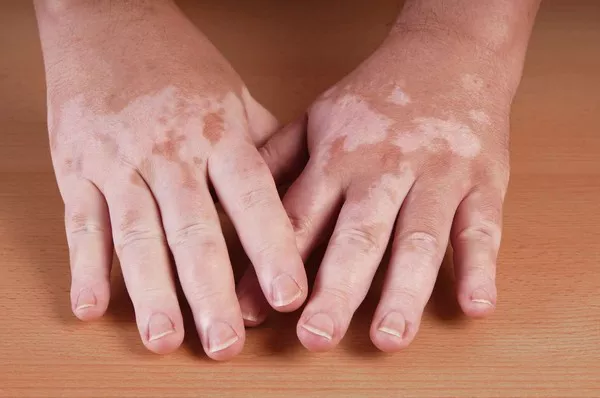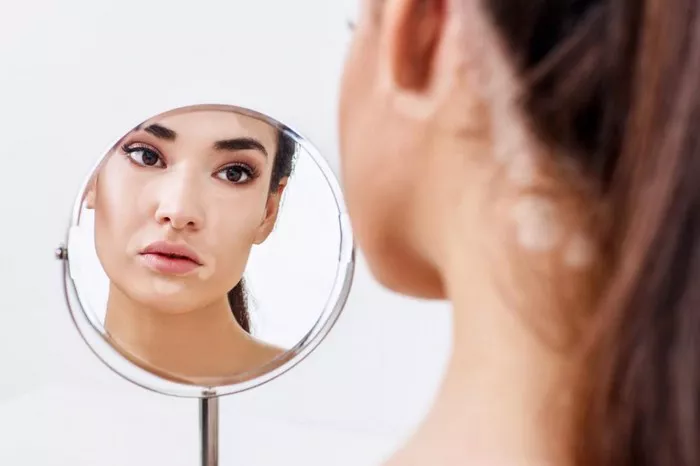Itchy skin can be a maddening sensation. Often, the relief of scratching seems irresistible, yet for some individuals, this seemingly innocuous action can lead to an unexpected and uncomfortable consequence: hives. Hives, also known as urticaria, are raised, red welts on the skin that can vary in size and shape and are frequently accompanied by itching. The connection between itching and hives is intriguing and complex, involving the body’s immune response and various triggers. To comprehend why hives appear after itching, we must delve into the underlying mechanisms at play.
The Basics of Hives
Before exploring the relationship between itching and hives, it’s important to grasp the fundamentals of what hives are and how they manifest. Hives are a skin reaction characterized by the sudden appearance of raised, red, or white welts (wheals) on the skin’s surface. These welts can be small or large, and they often cause intense itching. Hives can appear anywhere on the body and usually come and go within a few hours, although new ones may continue to develop.
The underlying cause of hives is related to increased blood flow and leakage of fluid from small blood vessels in the skin. This leads to the characteristic swelling and redness associated with hives. The triggers for hives can vary widely and may include allergic reactions, medications, infections, stress, or other underlying health conditions.
The Itch-Hive Connection
The relationship between itching and hives is often bidirectional. While hives themselves can be intensely itchy, it’s also common for itching to precede the appearance of hives. The process typically unfolds as follows:
1. Itching Triggers Mast Cell Activation: When the skin is scratched or irritated, it can trigger a process known as mast cell degranulation. Mast cells are a type of immune cell found in abundance beneath the skin’s surface. These cells contain numerous granules filled with histamine and other chemicals.
2. Release of Histamine: Mast cell degranulation, induced by scratching or other triggers, causes the release of histamine and other inflammatory substances into the surrounding tissue. Histamine is a key mediator in allergic reactions and plays a central role in the development of hives.
3. Vasodilation and Increased Permeability: Histamine causes blood vessels in the affected area to dilate (expand) and become more permeable. This allows fluid to leak out of the blood vessels and into the surrounding tissue, resulting in the characteristic swelling and redness seen in hives.
4. Formation of Hives: The combination of increased blood flow, fluid leakage, and localized inflammation leads to the formation of hives. The wheals appear as a result of this vascular response, and they are often accompanied by intense itching due to the release of histamine and other chemicals.
Factors Influencing Itch-Induced Hives
While scratching is a common trigger for hives, not everyone who scratches will develop them. Several factors influence whether itching will lead to the formation of hives:
1. Individual Susceptibility: Some individuals are more prone to developing hives in response to scratching or other stimuli. This increased susceptibility may be related to underlying immune system factors or genetic predispositions.
2. Underlying Conditions: Certain underlying health conditions, such as chronic urticaria (persistent hives), autoimmune disorders, or allergies, can increase the likelihood of developing hives in response to itching.
3, Intensity and Duration of Scratching: The intensity and duration of scratching can influence the severity of the immune response and the likelihood of developing hives. Vigorous or prolonged scratching is more likely to induce mast cell degranulation and histamine release.
4. Other Triggers: It’s important to note that itching is not the only trigger for hives. Hives can also be caused by allergic reactions, medications, infections, stress, temperature changes, or other environmental factors.
Managing Itching and Hives
If you frequently experience hives after itching, there are several strategies you can employ to manage symptoms and reduce the likelihood of outbreaks:
- Avoid Scratching: Although it can be challenging, avoiding scratching is crucial for preventing the onset of hives. Try using gentle tapping or applying a cold compress to relieve itching instead.
- Identify Triggers: Keep a detailed record of activities, foods, medications, or other factors that seem to trigger hives. Identifying and avoiding these triggers can help prevent future outbreaks.
- Use Antihistamines: Over-the-counter or prescription antihistamine medications can help reduce itching and minimize the immune response that leads to hives. Non-sedating antihistamines are often recommended for daily use in individuals with chronic hives.
- Seek Medical Evaluation: If you experience frequent or severe hives, it’s important to consult a healthcare professional for evaluation. They can help determine underlying causes and recommend appropriate treatment options.
Conclusion
The relationship between itching and hives is a fascinating example of the body’s complex immune response to external stimuli. While scratching may provide temporary relief from itching, it can also trigger a cascade of events that lead to the development of hives. Understanding this connection is key to managing symptoms and preventing recurrent outbreaks. By adopting preventive measures and seeking appropriate medical guidance, individuals can effectively manage itching and minimize the impact of hives on their daily lives.
Related Topics:


























